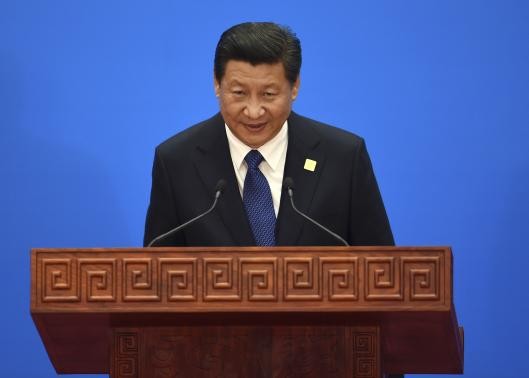In a report by the Global Times, Chinese President Xi Jinping urged policymakers and technology executives to tackle cyberspace issues through constructive talks, adding that a secure cyberspace is a priority for China.
"China advocates the building of a peaceful, secure, open and cooperative cyberspace and maintains that every country should institute its own Internet policy in line with its own national conditions," Xi stated at the conclusion of the 8th U.S.-China Internet Industry Forum on Wednesday.
Over 200 Chinese and U.S. executives, regulators and academics attended the event at Microsoft's Redmond campus, including Apple CEO Tim Cook, Microsoft CEO Satya Nadella and Alibaba CEO Jack Ma.
With the rapid development of information technology, the Internet is playing an increasingly important role in maintaining peace and security for individual countries. As such, Xi suggests that countries should formulate Internet-related public policies in line with their respective national realities.
"Since the Internet has become a new driving force for the economy and social development, China must take more efforts to keep a secure and stable cyberspace," said Zhu Feng, a professor at the School of International Studies of Peking University.
For Qin An, a cybersecurity expert at the China Institute for Innovation and Development Strategy, Xi's remarks highlight China's interest in implementing cyberspace sovereignty.
However, some companies such as Facebook are still having difficulties penetrating China's populace due to the government's strict blocking measures. This has prompted some companies to criticize China's efforts in restricting its market.
"The government should take a more proactive and confident approach to balance the demand for a secure cyberspace and the public's need for an open channel to communicate with the outside world," explained Zhu.
Qin further added that the main concern for the two countries should be the alarming spread of terrorism through the Internet.



























